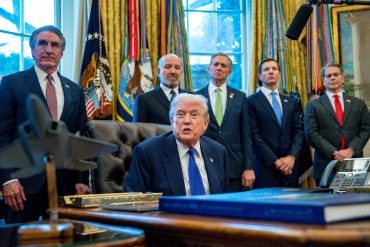
UniCredit Likely to Abandon €10.1 Billion Banco BPM Takeover Bid
6 minute read

Italian banking merger faces collapse as UniCredit struggles with Russian asset requirements and regulatory hurdles
Three Key Facts
- UniCredit CEO signals withdrawal from Banco BPM bid – Andrea Orcel states the bank will likely abandon its €7.5-10.1 billion acquisition offer due to unresolved government conditions and legal appeals
- Russian operations compliance adds complexity – UniCredit must exit Russian business under Italian “golden power” rules and ECB orders, with no acceptable buyer yet identified for €22.2 billion in assets
- UniCredit shares rise over 1% – Markets react positively to potential deal withdrawal, suggesting investor relief over avoiding execution risks and regulatory burdens
Introduction
UniCredit SpA moves closer to abandoning its multibillion-euro bid for Banco BPM SpA, as CEO Andrea Orcel signals the bank will likely withdraw from the deal. Speaking to Italian daily La Repubblica, Orcel cited unresolved government restrictions and ongoing legal challenges as primary obstacles to completing the acquisition.
The potential withdrawal marks a significant shift in Italy’s banking consolidation landscape. UniCredit’s bid represented one of the largest proposed banking mergers in recent European history, valued between €7.5 billion and €10.1 billion depending on market conditions.
Key Developments
Orcel’s comments reflect mounting frustration with regulatory hurdles that have complicated the deal since its announcement. “We have done and continue to do everything possible, but if we are unable to resolve the issues, as is likely, we will withdraw,” he stated in the interview.
The Italian government imposed conditions under “golden power” rules that require UniCredit to exit its Russian operations entirely. These provisions allow governments to protect domestic banking sectors from consolidation that might compromise national interests.
UniCredit received approval from EU antitrust authorities but faces additional requirements to divest 209 Banco BPM branches across 181 municipalities. The European Commission mandated these divestitures to maintain competitive balance, keeping the combined entity’s retail market share below 14%.
According to Investing.com, legal appeals have further complicated the timeline, creating uncertainty about when or if these conditions can be fully satisfied.
Market Impact
UniCredit shares gained more than 1% in Milan trading following Orcel’s statements. The positive market reaction suggests investors view the potential withdrawal favorably, reflecting concerns about execution risks and regulatory compliance costs.
The bank’s stock performance indicates market relief over avoiding what many analysts characterized as an asymmetric risk profile. While projected synergies of €1.1 billion annually by 2026 appeared attractive, the operational and political hurdles presented significant downside potential.
Banking sector analysts have expressed mixed views on Italian consolidation prospects, with many highlighting how regulatory complexity continues to impede large-scale mergers across European markets.
Strategic Insights
UniCredit’s Russian exposure remains a critical factor influencing its strategic decisions. The bank must divest €22.2 billion in Russian-related assets and southern Italian SME loans under current regulatory requirements.
Orcel emphasized UniCredit’s efforts to comply with European Central Bank orders, stating “No other bank has reduced its activities as much as we have.” However, he noted that “no acceptable buyer has yet come forward for either the Russians or the West, with the necessary means.”
The bank has allocated 69 basis points of excess capital to cover potential losses from Russian operations nationalization. This provision demonstrates the substantial financial impact of geopolitical tensions on European banking operations.
Italy’s preference for alternative consolidation scenarios has become apparent through government actions. Officials have pushed for a merger between Banco BPM and Monte dei Paschi di Siena instead, aiming to preserve regional banking competition and lending autonomy.
Expert Opinions and Data
Orcel addressed broader acquisition strategy during the interview, noting that UniCredit’s growth plans remain robust regardless of merger activity. “Our future is very bright with or without M&A,” he asserted, emphasizing the bank’s standalone capabilities.
The CEO also disclosed UniCredit’s involvement in reporting potential irregularities regarding the government’s sale of a 15% stake in Monte dei Paschi di Siena last November. “We tried to participate but were unable to. We reported the facts to Consob,” Orcel explained, referring to Italy’s market watchdog.
Milan prosecutors are examining the MPS stake sale and have questioned Orcel as a witness. The investigation centers on a placement organized by Banca Akros, which is now under judicial scrutiny for potential procedural violations.
Industry observers note that UniCredit anticipated significant operational efficiencies from the Banco BPM merger, primarily through branch closures, IT integration, and back-office streamlining. These synergies were considered essential given persistent challenges from low interest rates and non-performing loans across the Italian banking sector.
Conclusion
UniCredit’s likely withdrawal from the Banco BPM acquisition reflects the complex regulatory environment facing European banking consolidation. The bank’s decision prioritizes operational flexibility over potentially costly compliance requirements that could outweigh projected synergies.
The situation demonstrates how geopolitical factors and national banking policies continue to shape merger strategies across European financial markets. UniCredit now focuses on resolving its Russian exposure while maintaining its position as Italy’s second-largest bank through organic growth initiatives.








